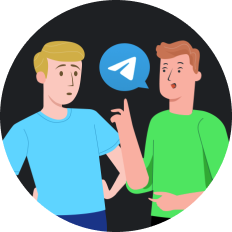How to Unblock Websites on School Chromebook
Imagine sitting in the school library, trying to access a website for your research project, only to be met with that frustrating blocked page. Sarah, a high school junior, found herself in this exact situation last week. Her teacher assigned a project requiring access to certain educational platforms, but the school's strict filtering system prevented her from reaching these resources. This is a common challenge for students using Chromebooks in educational settings in 2025, where network restrictions can sometimes hinder rather than help the learning process.
Why Schools Block Websites on Chromebooks
Schools implement website restrictions on Chromebooks for several legitimate reasons:
- Student Safety : Protecting students from inappropriate or harmful content
- Network Security : Preventing malware and other security threats
- Focus on Learning : Minimizing distractions during school hours
- Bandwidth Management : Ensuring sufficient internet speed for educational purposes
- Compliance : Meeting legal requirements for educational institutions
While these restrictions serve important purposes, they can sometimes be overly broad, blocking educational resources, research tools, and harmless entertainment sites that students might need to access.
Legal Methods to Unblock Websites on School Chromebooks
Before attempting to bypass school restrictions, it's important to consider whether doing so violates school policies. In many cases, there are legitimate and approved methods to access blocked content:
1. Request Access from IT Administrators
The most straightforward approach is to ask for permission:
- Identify the specific websites you need for educational purposes
- Prepare a clear explanation of why these sites are necessary
- Submit a formal request to your school's IT department
- Provide your teacher's endorsement if possible
Many IT departments are willing to whitelist specific educational resources when there's a legitimate academic need.
2. Use Mobile Data as a Hotspot
If school policy permits:
- Connect your Chromebook to your phone's hotspot
- Use your personal data plan to access the internet
- Remember this uses your mobile data allowance
3. Try Website Alternatives
Sometimes you can find similar content on unblocked platforms:
- Search for mirror sites with the same information
- Look for alternative educational resources
- Use different platforms that offer similar services
Using VPNs to Unblock Websites on School Chromebooks
When legitimate methods aren't sufficient, a Virtual Private Network (VPN) can help students access blocked educational resources. VPNs work by encrypting your connection and routing it through servers in different locations, effectively masking your browsing activity.
Why SafeShell VPN Stands Out for Students
Among the many VPN options available in 2025, SafeShell VPN offers specific advantages for students using Chromebooks:
- Ultra-fast speeds : No frustrating lag when accessing educational videos or research databases
- User-friendly interface : Simple enough for even tech-novice students to use
- Multiple device support : Works across Chromebooks, smartphones, and other devices
- Strong encryption : Protects student privacy while browsing
- Reliable connections : Minimizes disruptions during research sessions
How to Set Up SafeShell VPN on a School Chromebook
Setting up SafeShell VPN on a Chromebook is straightforward:
- Download the SafeShell VPN extension from the Chrome Web Store (if accessible)
- If the Chrome Store is blocked, download the APK file from the SafeShell website using an unblocked device and transfer it
- Install the extension or app on your Chromebook
- Create an account or log in with existing credentials
- Select a server location (choosing nearby servers generally provides better speeds)
- Connect to the VPN with a single click
- Browse freely with access to previously blocked educational resources
Alternatives to VPNs for Accessing Blocked Content
If VPNs aren't an option due to school policies, consider these alternatives:
1. Using Proxy Servers
If you can't install a VPN, web proxies can be your next best option. These online services act as intermediaries between you and the websites you want to visit.
Steps to Use a Proxy Server:
- Find a reliable proxy website (like ProxySite.com)
- Enter the URL of the blocked website you want to visit
- Browse through the proxy server
Limitations: Proxies typically don't encrypt your data like VPNs do, and they're often slower and less reliable. Many schools have also gotten wise to popular proxy sites and block them too.
2. Using Google Translate as an Impromptu Proxy
This hack has been a student favorite for years, and surprisingly, it still works on many school networks:
- Go to Google Translate
- Enter the URL of the blocked website in the translation box
- Select any language pair (doesn't matter which)
- Click on the translated link to access the site
This method works because you're technically accessing Google's servers rather than directly connecting to the blocked website.
3. Changing DNS Settings
Sometimes, schools implement website blocks at the DNS level. Changing your DNS settings might help bypass these restrictions:
- Click on the time in the bottom-right corner
- Select the Wi-Fi icon
- Click on your connected network
- Select "Network"
- Click "Name servers"
- Choose "Custom name servers"
- Enter alternative DNS servers like Google's (8.8.8.8 and 8.8.4.4)
- Click "Save"
4. Using a Site's IP Address Instead of Domain Name
Schools sometimes block domain names but not their corresponding IP addresses:
- Press Ctrl+Alt+T to open the Chrome OS terminal
- Type
pingfollowed by the website domain (e.g.,ping www.example.com) - Note the IP address that appears
- Enter this IP address directly in your browser's address bar
Responsible Usage Considerations
While knowing how to unblock websites on school Chromebooks can be valuable for educational purposes, it's important to use this knowledge responsibly:
- Only access sites that are blocked unnecessarily
- Prioritize academic and educational content
- Respect your school's legitimate safety concerns
- Consider discussing overly restrictive policies with school administrators
Final Thoughts
Returning to Sarah's situation, she ultimately found that SafeShell VPN provided the solution she needed to access educational resources for her project. The ultra-fast speeds ensured she could stream educational videos without buffering, and the secure connection gave her peace of mind about her online privacy.
In 2025's digital learning environment, having access to a wide range of online resources is more important than ever for academic success. Whether through official channels or tools like SafeShell VPN, students deserve reasonable access to the educational content they need while still maintaining appropriate boundaries for school networks.
Remember that the goal should always be expanding educational opportunities, not circumventing legitimate safety measures. With the right approach and tools, Chromebooks can be even more powerful learning devices, unlocking the full potential of online education.
🔒 Pro Tip : If you decide to use SafeShell VPN, take advantage of their flexible free trial to ensure it meets your needs before subscribing to a full plan. The trial offers all the premium features including lightning-fast speeds and top-level security without initial commitment.
People Also Ask
Can school administrators detect VPN usage?
Yes, sophisticated network monitoring systems can sometimes detect VPN traffic. However, SafeShell VPN uses advanced obfuscation technology that makes VPN traffic appear like regular browsing, reducing the likelihood of detection.
Is using a VPN on a school Chromebook allowed?
This depends entirely on your school's Acceptable Use Policy. Some schools explicitly prohibit VPN usage, while others may allow it for educational purposes. Always check your school's policy before proceeding.
Will a VPN slow down my Chromebook?
Most VPNs do create some slowdown due to the encryption process. However, SafeShell VPN is specifically optimized for speed, with minimal impact on browsing performance compared to other VPN services.
Are free VPNs good enough for school Chromebooks?
Free VPNs often come with significant limitations including:
- Data caps that restrict usage
- Slower connection speeds
- Fewer server options
- Potential privacy concerns
- Less reliable connections
SafeShell VPN offers a flexible free trial plan that provides better performance than typical free VPNs, allowing students to test the service before committing.


